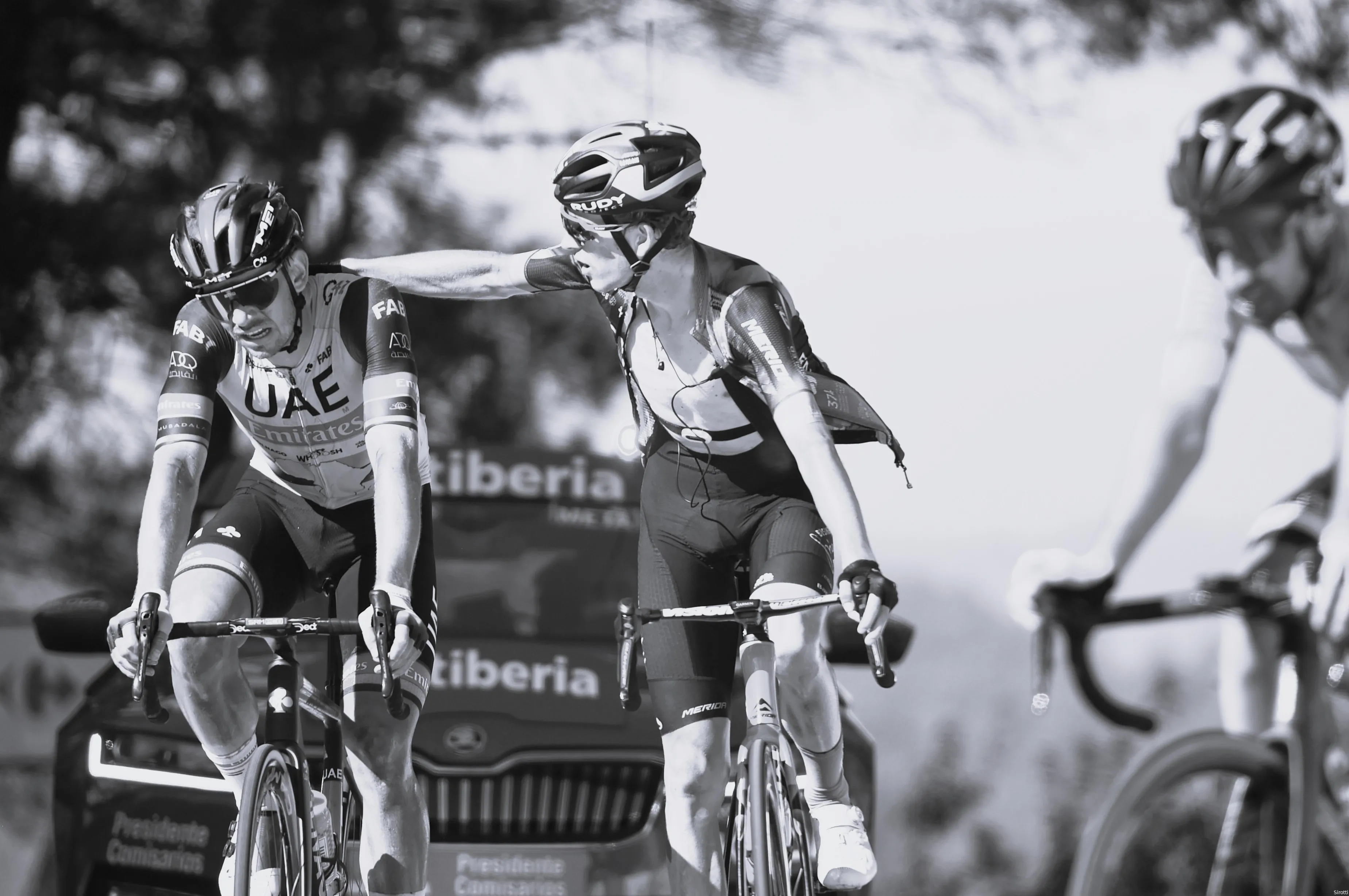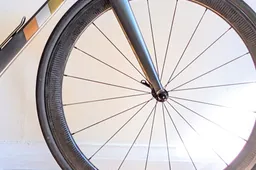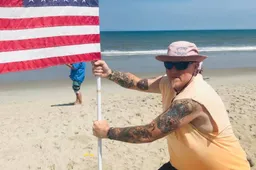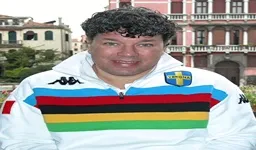Safety discussion following Mäder's death: from "not a priority for UCI" to "I exceeded my limit multiple times"
Cycling
Ide Schelling won in Slovenia, Jason Tesson triumphed in France, and Mathieu van der Poel finished fourth in the Baloise Belgium Tour time trial won by Søren Wærenskjold. But naturally, in the world of cycling, the focus on Friday was on one thing and one thing only: the death of Bahrain Victorious rider Gino Mäder. The sorrow and disbelief are profound, but on Saturday, there is also cautious consideration of how to move forward with the sport of cycling itself.
Various cyclists expressed their support for the family of the 26-year-old Swiss rider through social media. But there were also some who looked further into the matter. Mäder died as a result of a crash during a descent that was included in the final part of the Tour de Suisse. Cycling journalist Thijs Zonneveld voiced his strong opinion on Twitter: "This cannot continue like this. So many accidents, so many victims. There are numerous measures that organizations and the UCI can take to make cycling safer, but it simply isn't a priority for them."
Degenkolb and Skujins on safety in cycling
After the time trial in the Baloise Belgium Tour, IDLProCycling.com interviewed several cyclists. They all responded with a sense of defeat to the news, including Team DSM rider John Degenkolb. He also wanted to share his thoughts on safety in cycling: "Fortunately, more and more measures are being taken. It's an ongoing development process that should never stop. We heard the news of Mäder's passing. It's a sad day for the world of cycling. Perhaps today is not the day to discuss such matters."
Toms Skujins, riding for Trek-Segafredo, states that he has already set a limit for himself. The Latvian cyclist mentions that he has not taken any risks in descents for years. "I have exceeded my limit in that regard multiple times in the past. Those days are over. The news from Switzerland hits hard, of course. My condolences to his loved ones. Similarly, Guillaume Visser, a colleague of Zonneveld's at BEAT Cycling Club, expresses a similar sentiment when we asked him for a reaction: "It's the most terrible thing that can happen. From now on, when you ride in the hills or mountains, you definitely keep such things in the back of your mind."
Text continues below photo.

CPA chairman Adam Hansen takes action
While the Tour de Suisse will be completed under modified conditions, the professional cyclists' union CPA is taking action. Under the leadership of new chairman Adam Hansen (who is currently still active at the continental level after a long career), the riders have been consulted on various topics in the sport for several months, and that hasn't changed after Mäder's death. "I hope everyone now understands how dangerous this sport is. Riders should not take extra risks for entertainment. Period," said Hansen through his social channels. Out of respect for Mäder, the Australian will not address the subject until a later time.
However, not everyone is living by those rules. In an interview with NOS, former cyclist Stef Clement discusses how the safety of courses in cycling has been a hot topic for some time. "With certain courses, you think beforehand: I hope this ends well," he begins, adding, "You can't completely eliminate the risks; it's a risky sport. After the Tour of Poland in 2020, where Fabio Jakobsen had a serious crash, it was said that safety would be taken seriously. But what has actually changed since then? The barriers have been improved, but little else has happened. Cycling is not as safe as it could be."
Text continues below photo.

Lefevere sees UCI did nothing with his initiative
Clement calls on riders and teams to examine courses in advance, and to complain if necessary. "These courses are announced months in advance, sometimes even half a year in advance. That is when they should come together and express their opinions and suggest adjustments," says Clement, who believes that this should not be the responsibility of the riders. He would like to see a neutral party assess courses objectively. "Perhaps this task should not go the riders, as riders and former riders may not have a complete understanding of what is dangerous."
Patrick Lefevere was the spokesperson to draw a line after the accident involving Jakobsen in 2020. "Together with my colleague Richard Plugge (director of Jumbo-Visma, ed.), we wanted to entrust safety to an external, specialized entity. People who could inspect and approve courses. We discussed safety nets, impact cushions, a safety car," writes Lefevere in his weekly column in Het Nieuwsblad. The Belgian states that the UCI and ASO have taken some steps and made improvements, but: "Is this enough and happening fast enough? The answer to both those questions is twice. Right now, cycling is like Formula 1 twenty years ago. Something urgently needs to be done."
Tour Down Under

📸 Van der Hoorn does some soul searching in New Zealand with an impressive two-week journey

Participants Tour Down Under 2025 | UAE Team Emirates-XRG to debut four riders in Australia!

Preview Tour Down Under 2025 | WorldTour riders like kangaroos: read to jump-start!

Visma | Lease a Bike forced to make last-minute change for Tour Down Under, Vermote will participate

Drama surrounding Caleb Ewan: Sprint star has suddenly been removed from the Jayco AlUla website
Latest Cycling News

An ambitious yet transitional year: how the Visma | Lease a Bike women's team plans to make Plugge's goal a reality

Van der Poel riding on tires from well-known Formula 1 brand until end of 2029: "I’m very happy with them"

Vollering encourages her followers: "Trust me, you can do it too!" while training for new season in a winter wonderland

Longo Borghini to start in the Giro and Tour, but she has a clear preference

Visma | Lease a Bike and Van Baarle reflect on failed spring, think Van Aert might hold the solution
Popular Cycling News

Pidcock’s younger brother shares emotional message: "It was like having to learn everything in life at 21"

How Jonas Vingegaard believes he can challenge Tadej Pogacar in 2025 precisely because of his heavy crash

Meanwhile in the peloton | Pidcock and Alaphilippe receive wildcards for Omloop, Unibet Tietema Rockets also present

Dutch riders from Visma | Lease a Bike not in the Tour, and the bikes of Van Baarle and Campenaerts play a role in this

Pidcock finally responds to INEOS exit and skipping the Tour in 2025: "Glad to have a year of rest"
Latest Comments
- If she thinks talent alone will put her there she will not see many podium finishes much less a GC finish.....work as a team utilizing tactics to consistently be at the top.Germanrazor10-01-2025
- This was very informative! Luiz Antonio Duarte Ferreiraluizantonioduarteferreira02-01-2025
- Well explained, thanks for the clarity! Daniel DantasDanieldantas20-12-2024
- This is the kind of 'news' that belongs in a cheap tabloid. No matter how boring the offseason gets, nobody wants to read this.
 santiagobenites19-12-2024
santiagobenites19-12-2024 - I wish we could have seen him try. He'd absolutely get dropped before Pogi overtakes his domestiquesVeganpotter10-12-2024
- Talk is cheap! Next year barring crashes with a healthy team... all well be on track! Some need to talk to make a headline!mootman27-11-2024
- I do not see this event listed on HBO Max Sports Online? Can anyone confirm? Thanks!
 MrYuck23-11-2024
MrYuck23-11-2024 - It seemed that he was focusing forward at the time of the crash, after seeing a quick video snippet. But one thing I think he should focus on more intently is breaking a bad habit he has, right now. And that is his constant looking over his shoulders. He does that so much, that I am very sure it is not good for him. Simply watch videos of the greats of CX and you will see very little of that constant looking over their shoulders. That is a behavior that betrays a bit of insecurity on his part. He shouldn't be so concerned, incessantly, about what is over his shoulder. He needn't worry they didn't all disappear. He neds to keep his focus more ahead of himself, and he needs to pay a bit more attention to himself, in a confident manner. It is very frustrating to watch, because it is apparent that he has a lot of potential, and is in much better shape thwan many of his competitors, but the mental game needs to be sharpened more, because that part of strategy plays a huge part in the final results
 reemmo022-11-2024
reemmo022-11-2024 - hahahaha love this shit! I didnt even watched the race, but reading all the gossip articles of how stupid this is!Zatoichi19-11-2024
- Van Aert is really handsome. He can influence me all day! Ditto for Philipsen. Why do you think many of us love cycling?: to see heroic attempts at climbing mountains at high altitudes or to watch speedsters sprint for the finish line or to watch a human being ride at break neck speed down a tricky descent? No, it's all about their lean physiques and muscular legs. (apologies for objectifying these dedicated and amazing athletes).BarwonHeadsUp25-10-2024